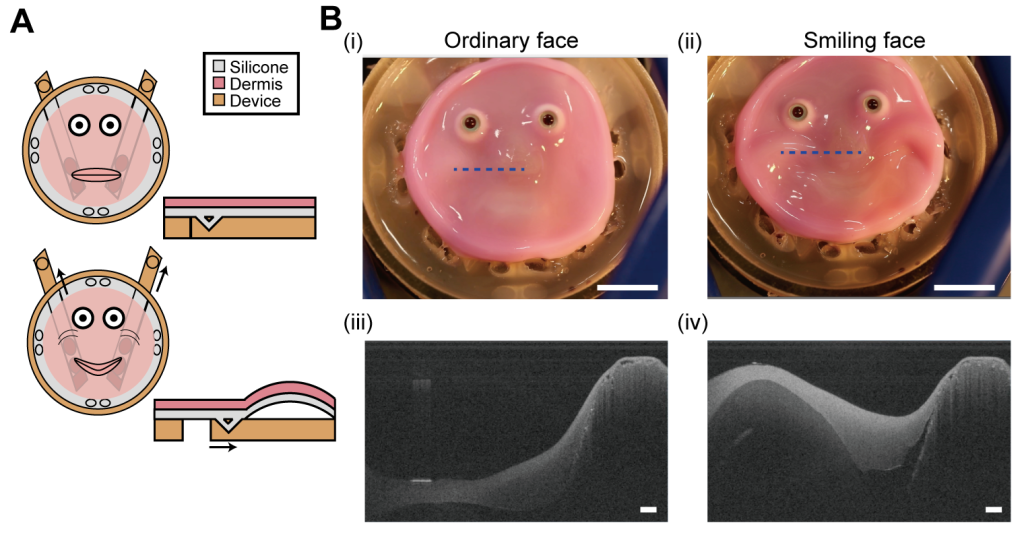Scientists from the University of Tokyo have learned all the wrong lessons from science fiction. They successfully attached living skin tissue to robotic faces, allowing them to perform human-ish expressions that are horrible and disturbing but, I guess, represent some kind of advancement in the field.
Maybe they can undo it?
Videos by VICE
Led by Shoji Takeuchi, the team developed a novel technique that uses a mask created from human skin cells that’s then attached to a robot in a way that conceals the binding between the two while still being flexible enough to form a grotesque facsimile of a human expression, like an unsettling smile or a deeply unsettling grimace.

The whole point of their research is to create robots that have fully functional skin like our own that reacts to its environment, hopefully leading to more realistic human-to-machine interactions that could have benefits in, say, the healthcare industry or in “companionship roles,” wink wink nudge nudge if you know what I mean. They probably mean eldercare or something but, like, c’mon. As we all know, porn is quick to jump onto any new technology.
Current prototypes have shown their ability to evolve a neutral expression to a smile which is designed to enhance empathy and human-robot interactions when, at least for now, it only elicits a “kill it, kill it now” response—in me, at least.

Rightly, the team thinks the biggest hurdle to overcome is a phenomenon video game players are likely familiar with, the concept of “the uncanny valley”: something that represents human, and is somewhat realistic in that depiction, but with an intangible sense of inhumanity that leads to everyone being creeped the fuck out.
In the future, the researchers want to add other humanlike biological systems like blood vessels and nerves. The researchers say this would revolutionize the medical field as it would allow for humane drug testing and could have some benefits to anybody who needs a skin graft.




